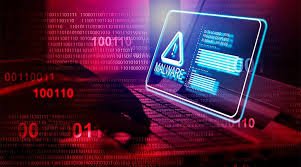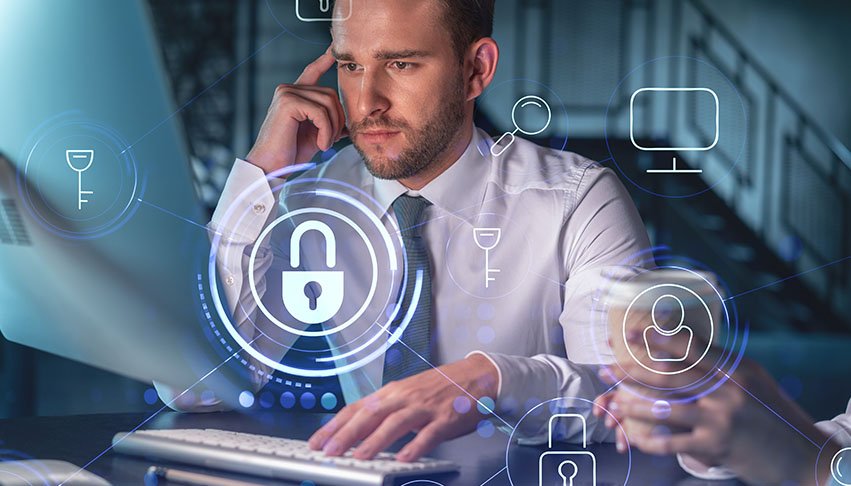Cybersecurity Tips for Everyday Users
In today’s digital age, cybersecurity is a priority for everyone, not just tech professionals. Whether you’re browsing social media, shopping online, or checking your bank account, your personal information is constantly at risk. Cybercriminals are becoming more sophisticated, and as everyday users, it’s crucial to take steps to protect ourselves from online threats. The good news is that securing your digital life doesn’t have to be complicated. By following a few simple cybersecurity tips, you can keep your personal information safe and reduce the risk of cyber-attacks.

1. Use Strong, Unique Passwords
One of the easiest and most effective ways to protect your online accounts is by using strong, unique passwords. A weak password is like leaving your front door unlocked, inviting cybercriminals to take advantage. To create a strong password, avoid using easily guessable information like names or birthdates. Instead, mix upper and lowercase letters, numbers, and special characters.
A good rule of thumb is to make your password at least 12 characters long. For added security, consider using a passphrase—a combination of random words, numbers, and symbols. Also, avoid reusing passwords across different sites. If you struggle to remember them, a password manager can securely store and generate strong passwords for you.
2. Enable Two-Factor Authentication (2FA)
Two-factor authentication (2FA) is an added layer of security that protects your accounts, even if your password is compromised. With 2FA, you need two forms of identification to log in: something you know (your password) and something you have (a temporary code sent to your phone or generated by an app).
Enabling 2FA on your accounts, especially for sensitive services like email, banking, and social media, is an effective way to prevent unauthorized access. Many websites offer 2FA, and it’s worth taking the time to set it up, even if it feels like an extra step. It’s an easy way to significantly increase your account security.
3. Keep Software and Devices Updated
Cybercriminals often exploit vulnerabilities in outdated software to gain access to devices and data. This includes everything from your operating system to apps and web browsers. Regular updates fix security holes that hackers can use, making it vital to keep all your devices and software up to date.
Enable automatic updates whenever possible, so your devices stay protected without you having to think about it. It’s also a good idea to regularly update antivirus software and any other security tools you use to ensure they’re working effectively against the latest threats.
4. Be Careful with Public Wi-Fi
Public Wi-Fi networks, like those in coffee shops, airports, or hotels, are convenient but also vulnerable to cyber threats. Hackers can easily intercept data sent over unencrypted networks, putting your personal information at risk. If you must use public Wi-Fi, avoid logging into sensitive accounts or making financial transactions.
For added security, consider using a Virtual Private Network (VPN) when connecting to public Wi-Fi. A VPN encrypts your internet connection, making it much harder for hackers to intercept your data. VPNs are a great tool to have when traveling or working remotely.
5. Recognize Phishing Scams
Phishing is a type of cyber-attack where hackers attempt to trick you into providing sensitive information, such as passwords, credit card numbers, or social security numbers. These scams often come in the form of fake emails, texts, or websites that look legitimate but are designed to steal your information.
To avoid falling victim to phishing, be cautious with unsolicited messages. Never click on suspicious links or open attachments from unknown senders. Always verify the authenticity of a message by contacting the sender directly through official channels, not by replying to the message itself. Look for signs of phishing, such as poor grammar, strange email addresses, or urgent requests for personal information.
6. Backup Your Data Regularly
Cyber-attacks like ransomware or accidental data loss can leave you without access to important files. To avoid losing your precious data, make sure to back up your files regularly. You can use cloud storage services or an external hard drive to create backups of important documents, photos, and videos.
By backing up your data, you ensure that even if your devices are compromised or lost, you can easily restore your information without major disruption. Set up automatic backups whenever possible, so you don’t have to remember to do it manually.
7. Be Cautious with Social Media
Social media is a convenient way to stay connected, but it also opens the door to potential security risks. Be mindful of what you share online—personal information like your address, phone number, or vacation plans can be used by criminals to target you.
Adjust your privacy settings to control who can see your posts and personal information. Avoid oversharing, and be cautious about clicking on links or downloading attachments from people you don’t know. Cybercriminals often use social media to gather personal details that can be used in identity theft or phishing attacks.
8. Secure Your Devices with Passwords or Biometrics
If you don’t already have a password, PIN, or biometric lock (like facial recognition or fingerprint scanning) set up on your devices, do so immediately. This simple step makes it much harder for anyone to access your personal information if your device is lost or stolen.
Setting up screen locks on smartphones, tablets, and laptops adds an additional layer of protection, especially if you store sensitive data on these devices. For added security, ensure that any backup data on the cloud is also encrypted and protected by strong passwords.
Conclusion
Cybersecurity doesn’t have to be complicated, but it does require vigilance and consistent effort. By following these simple tips, you can protect your personal information from cyber threats and reduce your risk of falling victim to cybercrime. Remember to use strong, unique passwords, enable two-factor authentication, and be cautious with public Wi-Fi, phishing scams, and social media. Taking proactive steps to secure your online presence is essential in today’s increasingly digital world.
By staying informed and adopting good cybersecurity habits, you can enjoy the benefits of the internet without compromising your privacy and security.



